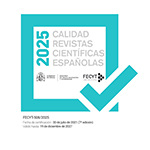Memory of the recent time and multimodality in rural schools in Colombia: a research-creation experience
Abstract
The article analyzes the experiences and the educational practices imagined about the memory of the recent past that emerged in a group of teachers from rural schools, located in territories affected by the armed conflict, by participate in multimodality pedagogical drifts. In the methodology, a research-creation approach was adopted that was articulated with the strategy called situationist drifts. This was developed in three moments: territorial-school diagnosis; design and implementation of pedagogical drifts; and dialogue of knowledge. In relation to the first result, three pedagogical drifts were designed and implemented that articulated victimizing facts and multimodal mediations. In the second result, it evidenced that the sound narratives caused commotion and position taking; that literature generated sadness, alterity and practices of narrative imagination; and that transmedia narrative produced performative effects in favor of social justice. In the third result, in the pedagogical dimension, teachers proposed the integration of knowledge and co-creation skills. In the aesthetic dimension, they raised the need to promote the distribution of the sensitive when students analyze knowledge about the violent past. And in the political dimension, they recommend to show resistances to war as a symbolic healing strategy.
Downloads
Article download
License
In order to support the global exchange of knowledge, the journal Arte, Individuo y Sociedad is allowing unrestricted access to its content as from its publication in this electronic edition, and as such it is an open-access journal. The originals published in this journal are the property of the Complutense University of Madrid and any reproduction thereof in full or in part must cite the source. All content is distributed under a Creative Commons Attribution 4.0 use and distribution licence (CC BY 4.0). This circumstance must be expressly stated in these terms where necessary. You can view the summary and the complete legal text of the licence.










